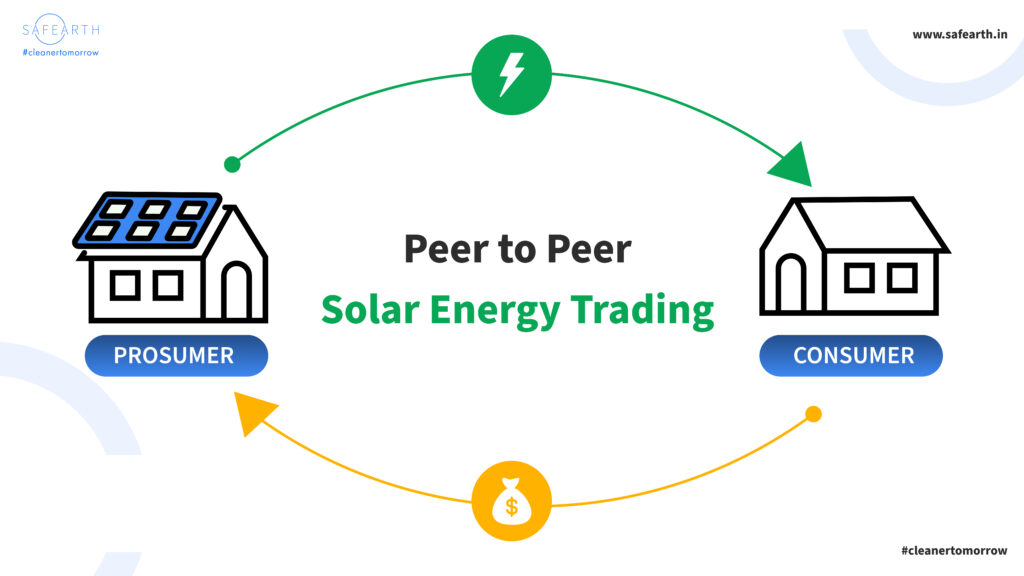Karnataka’s introduction of the Peer-to-Peer (P2P) Solar Energy Transaction Regulations marks a transformative moment for the state’s renewable energy landscape. As a seasoned operations and partner success manager in the renewable energy sector, I see this policy change as a catalyst for opening up regional markets and creating significant opportunities for solar solutions providers.
The new regulations allow consumers with rooftop solar installations to directly sell surplus energy to other consumers through blockchain-based platforms. This is a revolutionary shift from the traditional model, where excess energy was either injected into the grid under net or gross metering arrangements or simply went unused. The ability for consumers to engage in direct transactions brings several advantages that are likely to accelerate the adoption of solar energy across Karnataka.
Empowering Regional Markets
By decentralizing energy transactions, these regulations empower local markets to grow organically. In regions where grid infrastructure is less developed, or where energy supply is inconsistent, P2P transactions can ensure a reliable and consistent power supply. This is particularly beneficial for rural areas, where traditional energy access can be challenging.
For solar solutions providers, this policy opens up new avenues for business development. Companies can now focus on regions that were previously considered less viable due to infrastructure challenges. By providing tailored solar solutions that integrate seamlessly with P2P platforms, providers can tap into a market that is both underserved and eager for reliable energy alternatives.
Enhancing Asset Utilization
One of the critical challenges in the solar industry has been the underutilization of installed capacity. Many solar prosumers generate more energy than they can use, especially during peak sunlight hours. The new regulations address this issue by allowing prosumers to monetize their excess generation, making solar installations more financially attractive. This increased asset utilization is a win-win scenario—it boosts the return on investment for solar customers while ensuring that solar solutions providers have a more compelling value proposition to offer.

Driving Innovation and Efficiency
The integration of blockchain technology into energy transactions is not just a technological innovation; it is a step toward creating a more efficient and transparent energy market. The automated, secure, and tamper-proof nature of blockchain ensures that transactions are settled quickly and fairly, reducing administrative overhead and the potential for disputes.
For companies in the solar sector, this regulatory environment encourages innovation. There is now an incentive to develop and offer solutions that leverage blockchain for enhanced energy management, monitoring, and reporting. Additionally, the flexibility of the P2P platform allows for dynamic energy exchange, where prosumers can choose their consumers or engage in preferential energy exchanges based on real-time market conditions. This level of customization was previously unheard of in the energy sector and presents an exciting opportunity for forward-thinking companies.
Strengthening Partnerships and Collaboration
The success of P2P solar energy transactions hinges on strong collaboration between various stakeholders, including distribution licensees, service providers, and consumers. As a partner success manager, I see a vast potential for developing strategic partnerships that can enhance the implementation of these regulations. Solar solutions providers can collaborate with blockchain service providers, distribution companies, and even other renewable energy firms to create integrated solutions that cater to the specific needs of regional markets.
Such collaborations could also extend to the financial sector, where banks and financial institutions can offer tailored financing options for consumers and prosumers looking to invest in rooftop solar systems. The combined efforts of these stakeholders can create a robust ecosystem that not only supports but also accelerates the growth of Karnataka’s solar market.
Conclusion: A New Dawn for Solar in Karnataka
Karnataka’s P2P Solar Energy Transaction Regulations represent a significant step forward in the state’s renewable energy journey. By fostering decentralized energy transactions, enhancing asset utilization, and encouraging innovation, these regulations pave the way for a more vibrant and resilient solar market. For solar solutions providers, this is an unprecedented opportunity to expand into new regions, offer cutting-edge solutions, and build lasting partnerships that will drive the future of energy in Karnataka.
The policy change is not just a regulatory update—it is an invitation for the solar industry to reimagine what is possible and to lead the charge in creating a sustainable energy future for Karnataka and beyond.
Reference :
https://www.mercomindia.com/karnataka-frames-regulations-for-peer-to-peer-solar-energy-transactions

